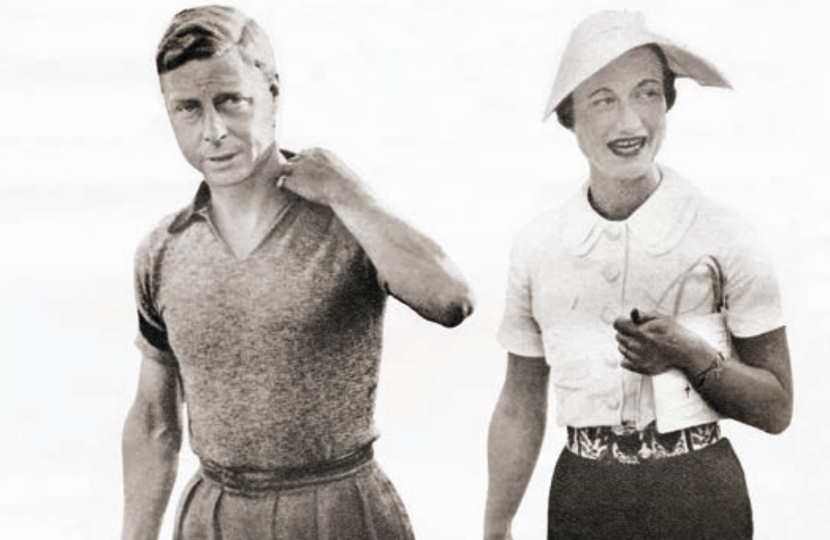
Few people have come under more sustained attack . Some have accused him of being a Nazi collaborator. The King’s side of the story, drawing on hitherto unpublished notes and memoranda which he left behind, appears in an important new book. Alistair Lexden reviewed it in the issue of Parliament’s magazine The House published on 18 December.
Once a King: The Lost Memoir of Edward VIII
By Jane Marguerite Tippett
Published by Hodder & Stoughton
King Edward VIII, later Duke of Windsor, is remembered today for two things above all: his suspected fascist leanings, symbolised by his visit to Hitler in 1937, and of course his sudden abandonment of his throne in December 1936, eleven months after he had ascended it, in order to marry his divorced American lover who was unacceptable as Queen to the Tory government of Stanley Baldwin and to much of the country.
The many (unproven) allegations against Mrs Simpson included a sexual liaison with the leading Nazi, Ribbentrop, who was hanged at Nuremburg after the Second World War.
Many people say that if the Nazis had defeated Britain during the war, the exiled ex-monarch would have happily returned to his country as a Nazi puppet ruler. A recent biography of him by Andrew Lownie is entitled Traitor King.
Is his historical reputation destined to remain at a low ebb for ever? If it rises, the material in this important new book will make a major contribution to his rehabilitation.
Despite its title, it is not a memoir at all. Jane Marguerite Tippett, a new author making her literary debut in fine style, retells the story of the unfortunate King’s life, stressing his world-wide popularity and success as Prince of Wales before his accession. In 1931 he delivered a speech entirely in Spanish in Buenos Aires, earning much praise for his “crisp and clear” enunciation.
Into this first-rate biographical study, Tippett inserts separate, extra sections containing many fascinating, hitherto unknown facts and insights written in the late 1940s as the Duke of Windsor worked on what would become his widely acclaimed book A King’s Story, published in 1951. Many of these intriguing additions come from Charles Murphy, the leading ghost-writer of his time who oversaw the project. But some of the best of them were noted down by the Duke himself in pencil when the mood took him.
Andrew Lownie and others who mock the Duke mercilessly will be astonished to find that he was capable of writing extremely well. He had a sharp eye for unusual aspects of life’s rich drama. Aboard the royal train in Bulgaria in 1936 as the guest of its King Boris, he observed how his host would “excuse himself from the drawing room, to reappear fully equipped with coal-smeared overalls, engineer’s goggles and a bright kerchief around the neck. The train would stop, Boris would mount the cab, and the train would proceed with Boris at the throttle, proclaiming his progress through his realm with prolonged joyous toots on the steam whistle.”
In these autobiographical jottings, published here for the first time, he wrote with painful honesty about the abdication crisis. A cabinet minister, Duff Cooper, urged him to postpone his marriage until after his coronation in May 1937. “You should then be able to marry on your own terms.” But the King could not agree. “I could not bring myself to adopt the course of action he recommended. For one thing I did not possess the subtlety and patience to play so tricky a game, and not only with Baldwin but with the British people.”
This valuable book allows a tragic King to speak with frankness across the years. But his newly discovered words are unlikely to silence the rumours of fascist sympathies, to which cables between various Nazis during the war appear to lend some credibility. The truth, however, is that the Duke was guilty of naivety, not treachery.

